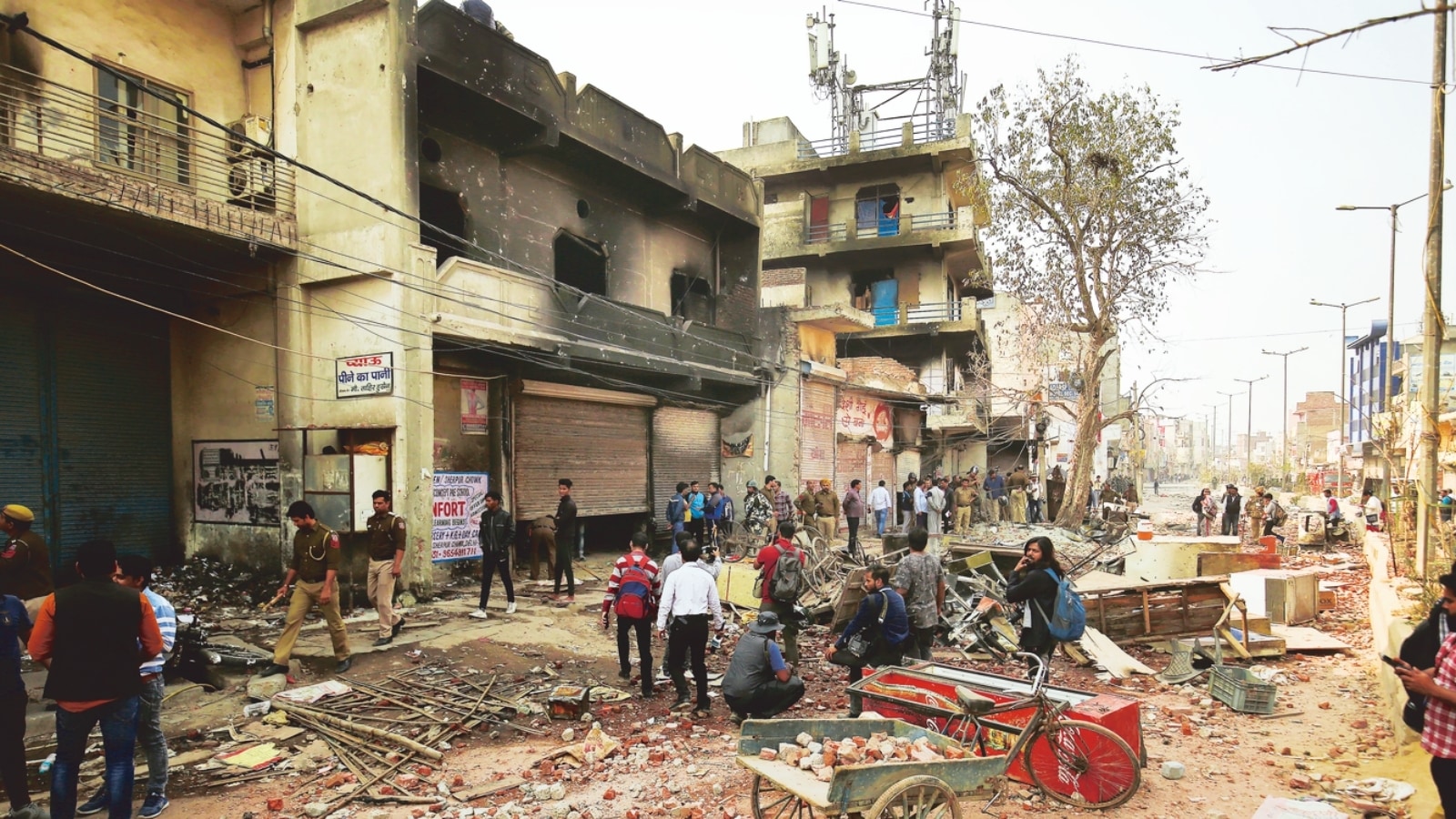In a recent judgment, a Delhi court strongly criticised the Delhi Police for clubbing six First Information Reports (FIRs) in a 2020 North-East Delhi riots case and for failing to conduct a proper investigation. Additional Sessions Judge Pulastya Pramachala of Karkardooma Courts observed that the Investigating Officer (IO) had “shrugged off” his duty, leading to significant lapses in probing the complaints. Furthermore, the court pointed out that the police falsely implicated an accused using a “manipulated piece of video.”

The court's order has now directed the Commissioner of Police to review the IO’s conduct and take appropriate action. The case highlights glaring issues of procedural lapses in sensitive riot cases and the need for accountability in investigations.
Key Observations and Acquittal
The court acquitted Sandeep Bhati, who had been named in FIR No. 98 of 2020, registered at the Karawal Nagar police station. The FIR was based on information from Guru Teg Bahadur (GTB) Hospital, where a victim named Shahrukh was admitted after sustaining injuries during the riots.
In his statement, Shahrukh stated that a riotous mob had dragged him out of an auto-rickshaw, assaulted him with sticks and stones, and shot him in the leg and chest. However, the IO chose to club eight complaints, ultimately prosecuting only six, based on the presumption that the same mob was involved in all the incidents.
The court criticised this approach, noting that the IO failed to corroborate the claims with evidence or conduct thorough investigations into the complaints. In its order dated January 8, the judge observed that the IO had prepared site plans for only three complainants and recorded statements under Section 161 of the Criminal Procedure Code (CrPC), but did not investigate further.
Failure to Establish Incidents
Judge Pramachala highlighted that none of the six complainants had witnessed their respective incidents. Despite this, the IO did not investigate the source of their information or attempt to identify any witnesses.
"Thus, it is well apparent that IO literally shrugged off his duty to properly investigate all these complaints and to submit his report based on complete investigation. That is the reason that in the charges, the exact time of such incidents was not mentioned. There is no concrete evidence on the record of this case, except testimonies of these complainants, to establish the alleged incidents and reasons thereof,” the court noted.
Manipulation of Video Evidence
A key aspect of the case was a 7-second video that purportedly identified Bhati as one of the attackers. However, the court observed that the IO deliberately shortened the video to five seconds, omitting portions that showed Bhati attempting to stop others from assaulting the victim.

"Thus, it remains without any doubt that IO did not investigate this case properly, and the accused herein was falsely implicated in this case on the basis of video Ex.PW16/V-1. As already observed herein above, apart from this video, prosecution did not come up with any other evidence against the accused,” the court remarked.
Separate FIRs Ordered for Complaints
The judge directed that since the investigation into the six complaints was incomplete, separate FIRs should be registered for each complaint. The court ordered a fresh and proper investigation into these complaints and instructed that a final report be submitted.
The matter has also been referred to the Commissioner of Police to assess the IO’s conduct and take necessary steps to ensure accountability.
Broader Implications
This judgment underscores the importance of thorough and impartial investigations in cases of communal violence. The court’s observations also highlight systemic issues within the police force, particularly in handling sensitive cases like the North-East Delhi riots.
The 2020 riots, which erupted in North-East Delhi, claimed over 50 lives and left hundreds injured. Many victims have accused the police of bias and inaction during the violence. This case is yet another example of alleged lapses in the investigation process.
Need for Accountability
The court's harsh words against the IO raise concerns about the training and accountability mechanisms within the police force. Clubbing multiple FIRs, failing to investigate thoroughly, and using manipulated evidence undermine public trust in law enforcement agencies.
Legal experts have pointed out that the Delhi Police has faced criticism in several other riot-related cases for procedural lapses and alleged bias. This case reinforces the need for robust checks and balances to ensure that investigations are conducted impartially and in accordance with the law.
Role of Judiciary in Ensuring Justice
The judiciary plays a crucial role in holding investigating agencies accountable. By ordering separate FIRs and referring the IO's conduct to the Commissioner of Police, the court has emphasised the need for detailed and unbiased investigations. Such judgments serve as a reminder that shortcuts in investigations can have severe consequences for the accused and the victims seeking justice.
Conclusion
The Delhi court's decision to acquit Sandeep Bhati and order fresh investigations into the six complaints sheds light on the systemic issues within the police force and the importance of due diligence in sensitive cases. The use of manipulated evidence and the clubbing of multiple FIRs are serious concerns that must be addressed to ensure justice for riot victims and fair treatment for the accused.
As the matter now rests with the Commissioner of Police for review, it remains to be seen what steps will be taken to address the lapses in this case and to prevent such incidents in the future.
With inputs from agencies
Image Source: Multiple agencies
© Copyright 2024. All Rights Reserved Powered by Vygr Media.




















